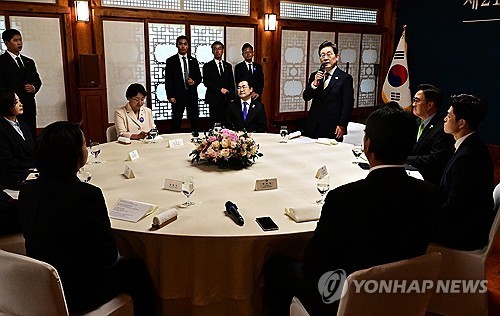On June 3, 2025, Lee Jae-myung of the Democratic Party of Korea was elected as the 21st President of South Korea. The AsiaN is publishing the hopes and expectations of Koreans for the new president and administration in both Korean and English editions. We welcome the interest, feedback, and constructive criticism of our readers.
The AsiaN Editorial Team

By Yoon, Il-Won,
Full Member of PEN International, Secretary-General of Digital AI Evergreen Cooperative, Former Director of Cyber Warfare Division at the Ministry of National Defense
SEOUL: First, congratulations on your presidential victory.
Democracy is not defined by the loudest majority but by the ability to listen to those whose voices are barely heard.
First, we must recognize that domestic norms are not always aligned with international standards. Assuming that Korea’s unique circumstances are universally valid can be a grave misjudgment. Prime Minister Kim Min-seok, known for leading the occupation of the U.S. Cultural Center in Seoul, may be applauded by domestic supporters but raises eyebrows in the international community. Appointing key figures such as the foreign minister and intelligence chief with openly pro-China, anti-American stances could deepen the already skeptical view held by Western allies.
Second, beware of the fallacy of composition—the mistaken belief that what is good for a part is necessarily good for the whole. Policies intended to protect workers that end up harming businesses, or initiatives to support the poor that alienate the wealthy, are textbook examples of misguided governance. Do not govern with a “megaphone mentality,” but with an empty mind and close observation. History is filled with well-intentioned policies that produced harmful results.
Third, no theory of economic history claims that anything other than productivity builds national wealth. Populist measures such as celebratory handouts, local currencies, and universal basic income may offer short-term satisfaction but will ultimately weaken the economy. It is time to overhaul inefficiencies in government, labor market rigidity, and resistance to development. Temporary fixes only worsen long-term problems.
Lastly, even without quoting Lord Acton’s famous words—“Power tends to corrupt, and absolute power corrupts absolutely”—it is evident that your administration now holds control over all three branches of government: legislative, executive, and judicial. Checks and balances are faltering, and the opposition has lost much of its power to scrutinize. We’ve seen too many advisors and leaders lacking the ability to self-reflect. When modest individuals turn tyrannical after gaining office, it is not power but a lack of morality that corrupts them. The only remaining safeguard against absolute power is honest introspection.
In conclusion, state failure begins with flawed institutions and ends with corrupt leadership, the collapse of rule of law, and government inefficiency. Once again, congratulations on your election. We sincerely hope your administration will lead with a spirit of inclusion, self-discipline, and reform.




